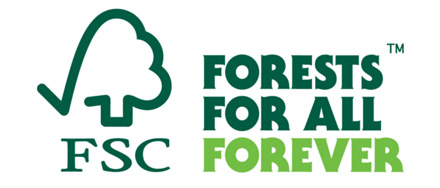
The Forest Stewardship Council (FSC) is celebrating 25 years of taking care of the world’s forests, having opened its first office in Oaxaca, Mexico in August 1994. In 1994, the FSC Secretariat opened its doors with only three staff members. In 2003, it relocated its headquarters to Bonn, Germany. Today the organization has expanded to become a globally recognized body with a staff of 355 in 50 offices, across five continents. Source: Timberbiz
“FSC has much to celebrate. We have grown to become the world’s most trusted solution for sustainable forest management,” Kim Carstensen, Director General, FSC, said.
“Issues like the climate crisis and diminishing biodiversity in the world’s forests are becoming more pressing, and FSC is more committed than ever to working with others to provide solutions to these challenges. Our first 25 years are the stepping stones for the next 25 years of working to ensure forests remain for generations to come.”
Globally, around 200 million hectares of forests are FSC-certified. In achieving this, FSC has created a new paradigm for stakeholder involvement in forest management.
“Through our decision-making system we bring together diverse interests – social, environmental and economic – in defining what responsible forest management means, and no interest group can outvote the others. This is the core of FSC: no other group can do that in all the world,” said Mr Carstensen.
Over the years, many FSC innovations had significantly influenced the way forests were managed. This influence went way beyond FSC-certified areas.
FSC developed the concept of high conservation value forests, now used by many actors including outside the forestry sector. This concept had positive impact for environmental protection and social benefits in many areas – for instance those used for agricultural commodities.
Controlled wood – FSC’s stamp of low-risk, but uncertified wood – had become a de facto industry norm in the forestry sector. With a stronger controlled wood standard now in place, FSC could use it as a stepping stone in a strong push for full certification to become the norm.
Mr Carstensen said it made him proud to see studies showing workers and local communities had better standards of living in FSC-certified forests; and others showing how FSC-certified forests were almost always performing better in terms of species protection, protection of vulnerable ecosystems, and watershed management, among others.
In the future, FSC planned to continue to improve access to certification for small forest owners and communities, and further extend the amount of certified area in tropical forests as a contribution to securing these forests for future generations.
“The world will not solve the climate crisis without responsible forest management, and FSC has the tools to be an important part of the solution for policy makers, investors and forest managers,” said Mr Carstensen.





